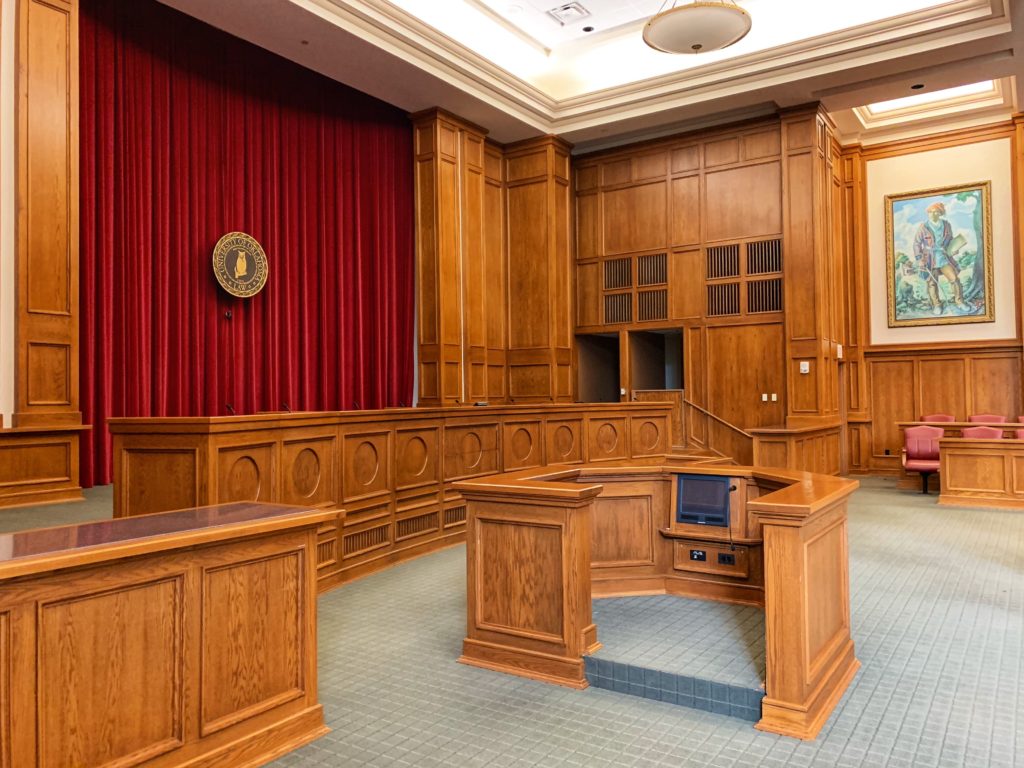
Matthew Skau, Associate Attorney, Yranela & Associates
You had a court date. Perhaps it was for a speeding ticket. Perhaps it was a pre-trial hearing for a DUI. But now the COVID-19 pandemic has closed all the courts in Washington State for everything except in-custody and protection order hearings. What will you do now?
Speedy Trial Rights
Under the Sixth Amendment of the US Constitution, you have a constitutional right to a speedy trial. Our country’s founders wanted to avoid a situation where the state could delay the resolution of your criminal matter indefinitely as leverage against you. In Washington, the prosecuting authority has 90 days to bring you to trial on a criminal matter if you’re not in jail, and 120 days to give you your contested hearing for an infraction.
Many, if not most, matters end up taking longer than this even without the novel coronavirus throwing wrenches into the court system. Often a defendant will waive their speedy trial rights in order to get more time to negotiate a case or take care of some pre-resolution obligations. In less frequent circumstances, a court may find “good cause” to delay.
The Washington State Supreme Court found the latter. On March 18, 2020 the Justices found that the COVID-19 pandemic constituted “good cause” for delaying all out-of-custody court cases. This means that any time between the court date you were supposed to attend and any new court date you may be given due to the pandemic is excluded for purposes of calculating your 90 or 120 day speedy trial rights. At your first post-pandemic court date the clock will start once more on your speedy trial rights and the process of working to resolve your case will resume.
Filings
Perhaps you didn’t have a court date yet. Perhaps you were arrested or pulled over shortly before the Governor issued his Stay at Home order. You may have a speeding ticket in hand or might be waiting on an arraignment date. Whether you’re still handling your matter by yourself, or have hired an experienced attorney to help you, you may be wondering what the next step might be.
Sadly, with the courts closed, there are delays in processing filings and other paperwork. If you have not yet responded to your traffic infraction, do so within 15 days of receiving it. This will protect your rights even if it takes the court months to send you a response. Please understand that even if you’ve hired an attorney, that attorney has limited options until after the court has processed the filing paperwork. If you have hired an experienced attorney, have faith that they will regularly check the courts’ online systems to see if there has been any progress in filing your case and getting things moving.
Pre-Trial Obligations
Perhaps your case required you to do something in anticipation of a resolution. Perhaps the prosecutor offered a deal on your speeding ticket if you took a driving course. Perhaps the court expects a drug and alcohol evaluation or for you to attend a Victim’s Impact Panel. How can you proceed?
Many of these obligations have shifted to an online model. Traffic school courses are already routinely offered online, and the Washington Department of Health has authorized Alcohol and Drug Information School courses and Victim’s Impact Panels to be done online. Alcohol and drug evaluations, however, have proven more problematic, as they will routinely require a urinalysis test as part of the evaluation process, something that cannot readily be done remotely.
Ask your attorney before spending time and money on these online courses. The prosecutor in your case may not accept online compliance even despite the pandemic, and in some instances you may wish to wait on classes until after an evaluation tells you to do them.
Pre-Trial Monitoring
If you’re the defendant in a Driving Under the Influence case, the judge may have ordered you on SCRAM, an alcohol-sensing ankle bracelet, or may have ordered an Ignition Interlock Device be installed in your vehicle. Monitoring like this costs money, and any delay in your court date costs you more money. Furthermore, you may be suffering economic repercussions of the stay-at-home order. You may have lost your job. Income is uncertain. What should you do?
There is, unfortunately, no easy answer. My advice would be to see to your basic needs first. If that means you need to stop paying for pre-trial monitoring, understand that this will likely result in the court scheduling a violation hearing as soon as the courts open for business once more. I would hope that any judge would be sympathetic to your circumstances.
Moving Forward
The COVID-19 pandemic, and Washington State’s response to mitigate the harm, has impacted a great many aspects of all our lives. If you need the advice of an experienced attorney to help you through the uncertainty please do not hesitate to contact us here at Yranela & Associates.

